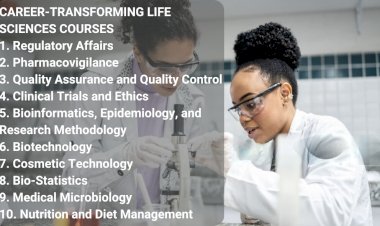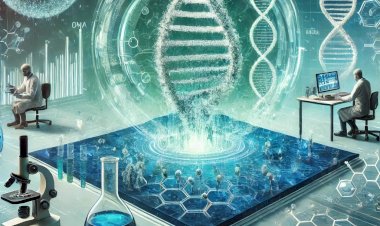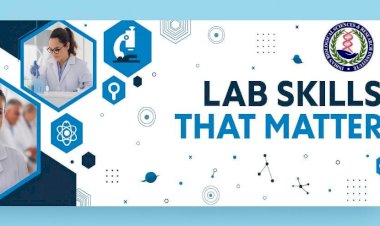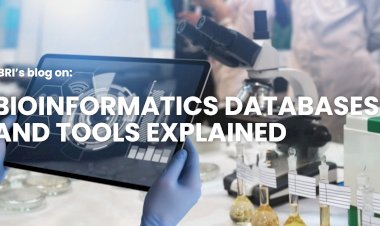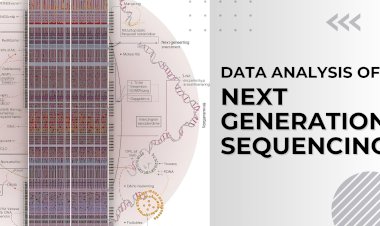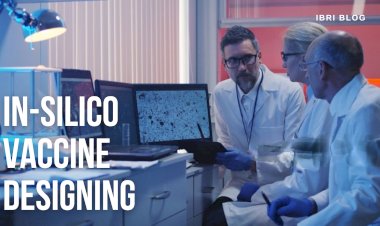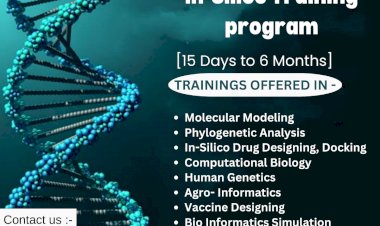LAB SKILLS THAT MATTER: STANDING OUT IN BIOSCIENCES
This blog explores the critical importance of practical lab skills in the biosciences industry and how hands-on training bridges the gap between academic knowledge and real-world application. It highlights key competencies such as mastering laboratory techniques, operating scientific equipment, and adhering to safety standards, while emphasizing the value of mentorship and industry-aligned curricula. Designed to prepare students and professionals for successful careers, the blog underscores why developing strong lab skills is essential for standing out and making a meaningful impact in today’s fast-evolving life sciences landscape.
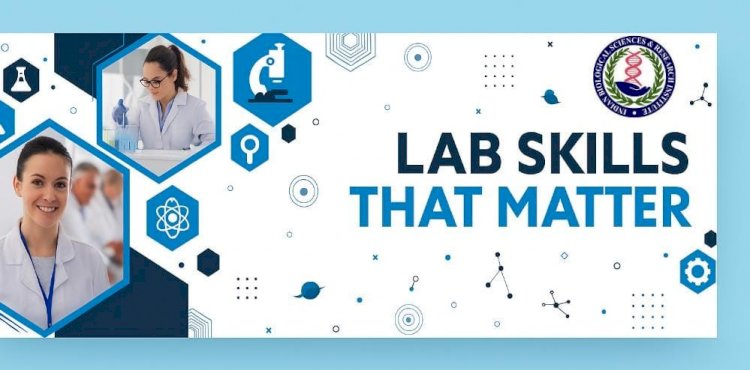
In today’s fast-paced scientific world, having a solid foundation of theoretical knowledge is just the beginning. What truly sets bioscience professionals apart is their ability to translate concepts into practical skills—skills that are essential in research labs, clinical diagnostics, biotechnology firms, and pharmaceutical companies. It’s these hands-on abilities that turn knowledge into innovation and discovery.
Why Lab Skills Are Crucial in Biosciences
From molecular biology and microbiology to genomics and pharmacology, modern biosciences are inherently hands-on disciplines. The industry demands professionals who can not only interpret scientific literature but also operate advanced instruments, conduct complex experiments, and analyze data with precision and accuracy. These skills directly impact the quality and reliability of scientific results, which in turn affect healthcare advancements, environmental solutions, and biotechnological innovations.
Unfortunately, many academic programs still focus heavily on theory, often leaving graduates underprepared for real-world lab environments. This disconnect between education and industry needs can create challenges for fresh graduates entering the workforce. That’s why lab-focused, practical training programs are essential—they provide the experiential learning necessary to bridge this gap and prepare students to thrive in dynamic scientific settings.
The Power of Hands-On Experience
Learning in a laboratory setting fosters essential competencies that cannot be fully developed through lectures alone, such as:
- Mastery of core lab techniques like PCR (Polymerase Chain Reaction), electrophoresis, chromatography, and spectrophotometry
- Familiarity with laboratory instruments and protocols widely used in research, diagnostics, and quality control
- Critical thinking and problem-solving skills to troubleshoot experimental issues in real time
- Meticulous scientific documentation and data management to ensure reproducibility and integrity of results
- Strict adherence to safety regulations and quality assurance standards, which are vital in any scientific environment
These skills are more than technical tasks—they are the foundation of scientific credibility, ethical research, and professional readiness.
Learning from Experienced Mentors
One of the most impactful elements of practical training is learning from instructors who have substantial experience in both academic research and industry applications. These seasoned mentors bring invaluable insights and real-world context to laboratory work, ensuring that students not only understand how to perform a technique, but also why it matters in the bigger scientific and commercial picture.
This kind of guidance helps bridge the gap between textbook science and applied bioscience, empowering learners with a clearer vision of their career paths and the demands of the workplace.
A Curriculum that Aligns with Industry Needs
The most effective training programs continuously evolve to reflect emerging trends and standards in biosciences. These curricula often include:
- Comprehensive modules in molecular biology, immunology, biochemistry, and genetic engineering
- Hands-on experience with bioinformatics tools and data analysis software
- Instruction on regulatory compliance, Good Laboratory Practices (GLP), and Good Manufacturing Practices (GMP)
- Development of soft skills, including scientific communication, teamwork, and project management
By covering both technical and professional competencies, these programs ensure graduates are well-rounded, confident, and job-ready upon completion.
Success Stories Speak Volumes
Many bioscience professionals who have completed practical lab training report significantly enhanced confidence and smoother transitions into their roles. Whether they join research laboratories, biotech companies, pharmaceutical firms, or clinical diagnostics centers, they are equipped to contribute immediately and effectively.
One trainee shared:
“Getting hands-on training made all the difference. I walked into my first job knowing exactly what to do in the lab—and that confidence helped me grow quickly in my role.”
Such testimonials underscore the transformative power of practical experience in shaping capable scientists.
What Makes a Training Program Stand Out?
To truly prepare bioscience professionals, a training program should offer:
- Access to modern laboratories equipped with industry-standard instruments.
- Structured, skills-based modules that target specific industry roles and requirements.
- Expert-led instruction from professionals with academic and commercial experience.
- Balanced emphasis on technical proficiency and essential soft skills.
- Opportunities for internships, collaborative projects, or real-world case studies.
These factors combine to create an educational experience that is immersive, relevant, and career oriented.
Empowering Bioscientists Through Advanced Research and Skill Development
The Institute of Biological Sciences and Research Institute (IBRI), based in Noida, is a premier center dedicated to advancing bioscience education, research, and skill development. With a focus on practical, industry-aligned training, IBRI equips students and professionals with cutting-edge laboratory techniques, bioinformatics tools, and research methodologies. The institute prides itself on fostering scientific innovation and preparing future-ready bioscientists through expert mentorship, state-of-the-art facilities, and collaborations with academia and industry.
Conclusion: Practical Skills, Professional Impact
In biosciences, lab skills are more than just a requirement—they’re a competitive advantage. The ability to handle sophisticated equipment, rigorously follow protocols, and accurately interpret scientific results distinguishes effective bioscience professionals from their peers. It’s this combination of knowledge and practical expertise that makes graduates employable, valuable, and ready to drive scientific innovation.
Investing time and effort in developing these practical skills is one of the most important steps toward a meaningful and successful career in the life sciences.








